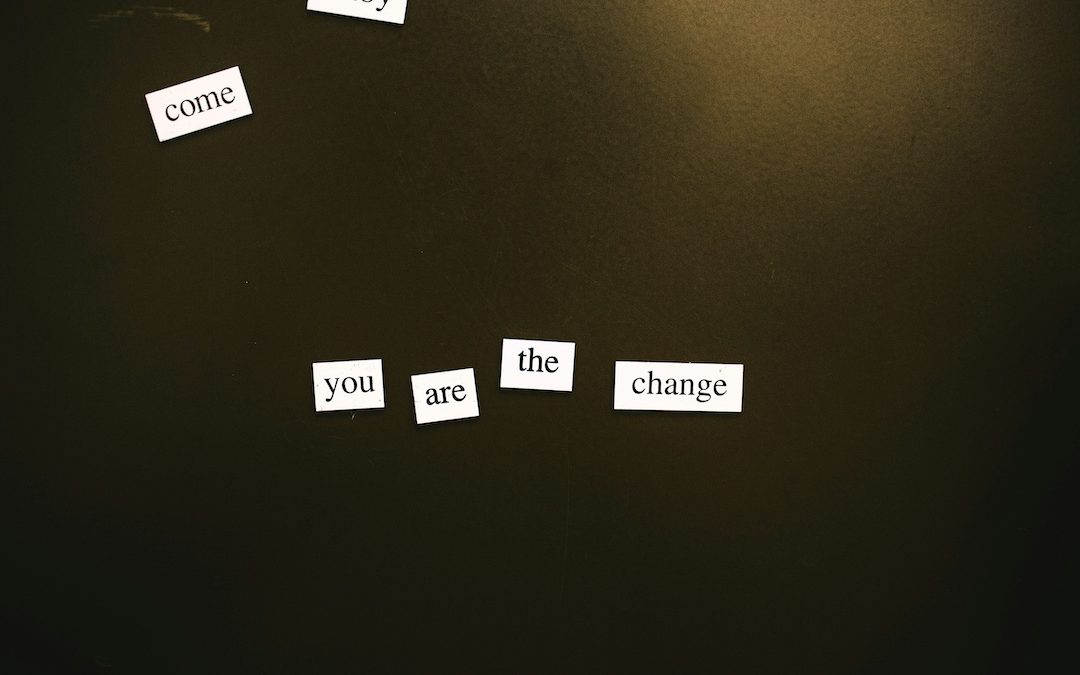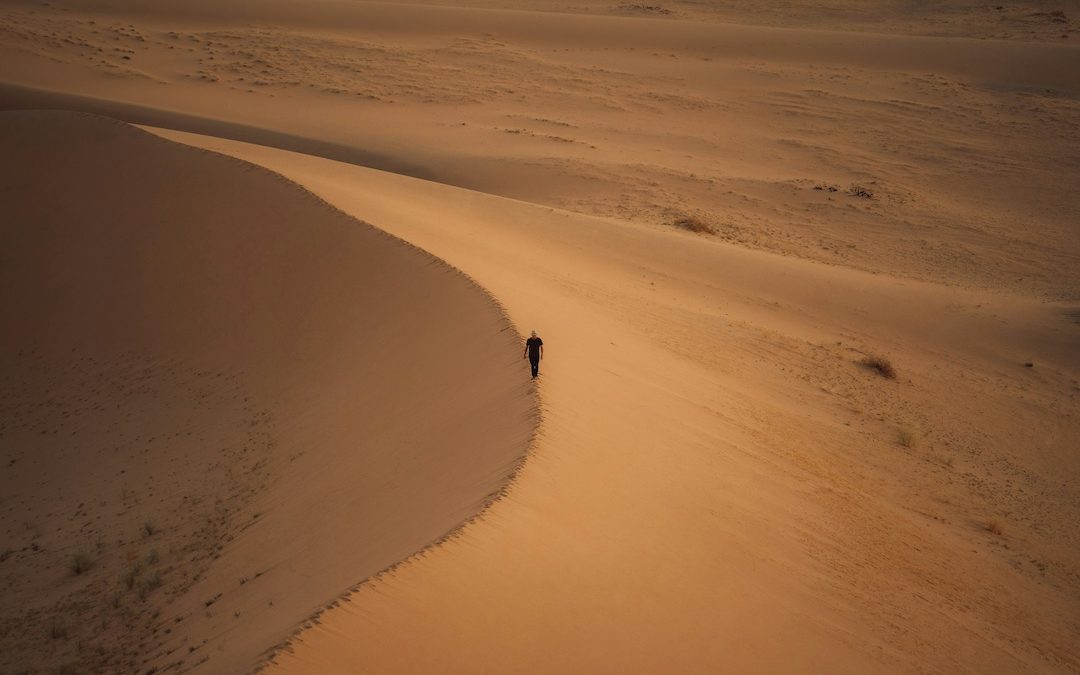
by Rachel Toalson | Wing Chair Musings
I like to be in control. It’s one of my things.
Life is good at reminding me I can’t be in control of everything.
Right after our twentieth wedding anniversary, my husband lost his job. A job that paid well. A job that provided us with good health insurance and all the things we needed (writing is not one of those kinds of jobs, for the majority of us).
It threw me into a tailspin. It was very hard on my family. It brought up some old childhood trauma.
I couldn’t control when (or if) he’d get another job or where that would be or how long our savings would last or what might happen in the gap.
It was excruciating. I started sliding into some of my life-is-out-of-control-and-I-need-control habits—not eating, exercising more, slipping into myself instead of talking to the people around me or seeking others for emotional help and support.
No amount of not-eating or overexercising or over-thinking or removing myself from society could change what was happening, though. I had to endure it.
So much of life is like this. I mean, we have all now lived through a global pandemic—are still living with it. This was completely and utterly unexpected. We had to endure it. We couldn’t control any of what happened—except where it concerned ourselves.
And that brings me to what we can control in life: ourselves.
I certainly can’t control other people—who my kids wake up being today, what food they decide they like this week and whether they complain about tonight’s dinner, how helpful that customer service representative will be on the other end of the phone line, how many emails Allstate will send me reminding me I have an auto quote ready, am I ready to proceed?
For a person who prefers control, a whole lot of life is out of my control. I would like to change so many things, but I don’t have control over that change. How kind people are to one another. The rate of inflation. AI taking the jobs of people I love. I can’t control how many people will read this newsletter or what the state of the world will be from day to day or what will happen in the news and how other people will report that news. I can’t control the rising prices of groceries that’s killing us or whether it will rain when I go out for my run tomorrow morning or whether I will sell another book, ever.
These things and their uncertainties I have to endure.
I’d like to change the world into a more just world, into an economically fair world, into a media literate world. I don’t have control over any of that—I mean, I can work for those things, certainly, but I can’t control whether my work will change anything significant.
Sometimes we just have to endure.
“I changed what I could—and what I couldn’t, I endured,” said Dorothy Vaughan, an American mathematician and computer programmer.
And we can endure. We can make it through. It may sound trite, but this, too, shall pass. My husband losing his job taught me that.
He has a new job. We’re catching up. We endured as well as we could. We’d like to have some easy times for a while, but one never knows what’s around the corner. We control what we can, and the rest we endure.
I hope you have a beautiful month of enduring—and changing whatever you can.
Here are some things I like to think about changing:
1. My own thoughts, opinions, beliefs and attitudes about my situation
There are times when I’ve been so overwhelmed I’ve said, “I just can’t do this.” And I couldn’t. When we say we can’t, we can’t.
My attitude about any situation can make it easier or harder for me. When I step out the door for a run and I think, “Oh, wow, it’s really humid, this is gonna be a tough run,” it is a tough run. And sure, maybe that’s because of the humidity, but it’s also because my mind believes it’s hard, and that become my reality. If I step out the door and think, “I’m feeling great today!” I have a much better and easier run.
We can do the same in our lives—approach each hurdle with a positive attitude. (I know, I know, I’m an eternal hopeful pessimist, and it’s hard to be positive about certain things…but I’m trying.) And the hurdles get a little smaller.
I like to repeat the mantra, I can do hard things, instead of This is too hard. Because then I can do hard things.
2. How I deal (or don’t) with my emotions
We can’t always control what emotions we feel during a particular situation, but we can control how they affect us and what we do with them.
Every emotion is acceptable. We just have to figure out healthy ways of dealing with them. Stuffing them down is not healthy. If we feel them, that allows them to pass, the way emotions are supposed to do. It lessens their power over us.
So we feel our emotions and we let them pass and we move on to the next thing.
3. My interactions with the world and other people
While we can’t control other people we come into contact with, we can control ourselves. When we experience unhelpful customer service, we can extend kindness to the person at the other end of it. Make sure they have a good interaction with us, because that’s a hard and mostly thankless job.
I like to think, I may be the only person who will love them today. What do I want that love to look like?
That’s something we can control.
Approach each other with love and compassion and acceptance—that’s a change worth working for.

by Rachel Toalson | Wing Chair Musings
I’m the kind of person who thrives on solitude. Not all the time (that, I fear, would make me lonely). But sometimes.
I recently had a few days to myself, and I hadn’t even realized how much I needed them because of all the activity that comes from releasing a new book plus having kids home for the summer plus the regular speed of life.
Solitude revitalizes me. I use it to read, write, run, just stare into space.
Our modern lives are full of activity and people—not necessarily in-person people but online—and all of that can feel overwhelming. Sometimes I have to take time away from it all.
Summertime is challenging, because there are people everywhere. I don’t live in a big house, and now most of my kids are bigger than I am and take up more space. It’s practically impossible to find stillness and quiet, much less solitude.
But it’s necessary—for all of us.
Solitude can be uncomfortable for some people, especially at first. Without all the voices of other people, we can hear our thoughts really well. And that can be…unpleasant, depending on the day.
I recently watched a documentary on anxiety. In an anxious mind, like mine, there’s always chatter. It takes a lot of time to find quiet, and it rarely happens without solitude.
In solitude, the mind fills with a hundred things. It’s unsettling. At first. And then you reach the silence. A deep, inner silence (even if it’s not complete silence—it’s not for me). A place of knowing and understanding and clarity.
Gabriel García Márquez, a Columbian novelist and short story writer, once said, “The secret of a good old age is simply an honorable pact with solitude.” (He lived until he was 87 years old.)
I tend to agree.
Solitude, according to research, can reduce our feelings of stress and make us feel calmer. In solitude we can increase our self-knowledge and figure out our problems and think deeply about what’s going on in our lives and how to be a better human.
(A note here: Solitude is not synonymous with lonely. The reason I can be okay with and long for my solitude is because I have my people. So don’t cut yourself off from people just to find solitude; we need each other!)
Solitude increases our creativity, because it gives us space to breathe and think. It fosters a greater sense of intimacy and connection with others, contrary to what we may think about relationships (the old adage “absence makes the heart grow fonder” turns out to be true).
How much solitude is best for us?
That depends on the person. We all have to figure it out for ourselves. I spent a few days alone, and I felt completely renewed.
What should you do with your solitude? That’s completely up to you, too. Some of us can feel a little itchy with fifteen minutes all by ourselves and no one needing anything from us (myself included). So I’ve collected some of my favorite things to do with solitude (scroll down to the end of this email for the list).
In order to practice solitude, however long or short it may be, we have to prioritize it. The activity of a day eats away the hours. It’s gone before we know it—at least that’s how my life goes.
We might find we can better deal with the challenges our days often throw at us if we can just spend a little time by ourselves.
I hope you have a splendid month of finding moments of solitude.
What to do with solitude:
1. Read a book or write in a journal
2. Sit and stare into space (if it makes you cringe, set a timer so your brain knows it will end)
3. Just listen to your thoughts as they pass
4. Meditate
5. Do some candlelight yoga
6. Go to the library and browse books
7. Run or hike
8. Color
9. Play dress up for yourself
10. Cross a room doing forward flips like you used to do as a kid (just don’t pull any muscles)

by Rachel Toalson | Wing Chair Musings
I’d just recorded a video about how not everyone will like our books and we can’t possibly please everyone—and I got a trade review that rubbed all my insecure places.
The reviewer clearly didn’t “get” the book and missed the whole point of it. She focused on strange pieces and made her assessment with what felt like only half the picture.
It threw me into a tailspin.
Have you ever noticed that when you think you’ve mastered some way of being human—when you think maybe you’ve wrestled with it enough to make some statement about it or even teach someone about it, the universe endeavors to prove you haven’t quite learned what you needed to learn? (My children show me this frequently.)
I’d just recorded a video about this. It’s like the universe said, “Okay. Challenge accepted.”
It took me a few days to get over this review. I kept hearing the reviewer’s words in my head when I sat down to write. Even though I knew they weren’t true. Even though I know that what other people think is not my business.
And then I read these words of Rose Marie Toussaint’s: “When we are rejected in the world we will recover only as we begin to realize that we must hold on to who we are and not be defeated by outside evaluations.”
You may not know who Rose Marie Toussaint is. She’s a physician who was the chief surgeon for the liver transplant center at Howard University Hospital. She was born in Haiti and came to the U.S. with her family when she was a teenager. She was a woman, born in 1956, who loved math and science and medicine at a time when women weren’t supposed to love math and science and medicine.
How much opposition and rejection do you imagine she faced as a Black woman in medicine during the 1970s and 1980s?
She meant those words she said, and she lived them.
Reading her words reminded me that I’ve been here before. I know who I am.
Sometimes we forget our song. We let those negative winds push us around and tell us a story that’s not true. We let them say, You don’t deserve happiness, this dream was too big, you are not good enough or worthy enough for any of it.
I get caught in that headspace sometimes. Many of us do.
The glib words of others can bring us low. They can make us forget our song, shake up the core of who we are. Holding on to who we are is not always easy.
But we must. We must hold on to who we are with aching, cramping fingers when we are rejected by the world.
We have multiple opportunities for those outside evaluations to come crashing in. I feel them in my mothering, my partnering, my writing, my publishing, my volunteering or not volunteering…on and on it goes.
The question is, will we hold on to who we are? Or will we be shaken by outside opinions and evaluations?
I hope we always stand strong.
Have a marvelous month of defeating those outside opinions. I’ll be fighting them right alongside you.
Here are some of my tricks for remembering who I am:
1. Take some time.
It’s okay to feel what you feel. These are words I’ve told my children over and over again. Our feelings are valid.
But.
But we don’t want to stay in the negative feelings for too long.
Sometimes outside opinions and evaluations hurt. Wherever and whomever they come from. They all have the same kind of sting.
It can be helpful to take some time away and reconnect with who you know you are. Let those outside evaluations run their course, and hold tight to what you know is true: You are magnificent just the way you are.
2. Lean on people.
The people who love you can remind you who you are and that you’re magnificent. Don’t push them away. Open up and talk. Let them love you.
My freshman year of high school, I was completely in love with my boyfriend, who was a junior—and absolutely gorgeous. We dated for about three months before he broke up with me. I was devastated with a capital D. I thought I would never make it through that breakup.
A good friend of mine made me a mix CD full of empowering songs that reminded me who I was and that I didn’t need a stupid boy who clearly didn’t know what he had when he had it. I listened to that tape over and over and over. She was my people. She reminded me I was amazing. (Also: there’s a young adult story in this. I’m working on putting it down on paper!)
3. Evaluate
I’m a big fan of evaluating. Everything can benefit from evaluations.
Ask questions like, Why does this bother me so much? The truth? It probably speaks to a pesky insecurity. Which means this is a growth opportunity.
And remember—the pain of this evaluation/disappointment/anger-inducing circumstance won’t last forever.
Onward!

by Rachel Toalson | Wing Chair Musings
Have I mentioned I love what I do?
This is a frequent joke between my husband and me—because I mention it at least two times a week.
I really, really love what I do.
When people ask me if there’s a part of my writing process that I don’t like, I usually have a hard time coming up with one. Because every part of it is enjoyable—the exciting origin of an idea, its development into a possible story, the drafting of that story and all its messiness, the revisions that feel like puzzles.
Copy editing may be my least favorite part, I think. And yet still enjoyable in its own way—especially because it represents an almost-finished book!
Not a day goes by that I don’t feel incredibly grateful that I get to do this.
The writing life is full of uncertainty—and uncertainty is not my favorite. (Okay, I found my least favorite part of the process…also—reviews). I could go whole years without selling another book to a publisher, without seeing one of my books out in the world. The uncertainty can feel nearly impossible to carry sometimes.
And yet every time my agent and I go out on submission with a new manuscript, I feel such hope and possibility. Because I know that what I do matters. It matters to me, and it also matters to the readers of my books. It matters to children and adolescents and young adults and older adults—everyone who picks up one of my novels or poetry or essay books.
We may not ever know just how much our work matters. We till the soil, plant the seeds. We don’t always get to see the blooms or how colorful the flowers are.
Recently I visited my youngest son’s elementary school, where I talked and taught about poetry. A mom I didn’t know found me on social media and sent me a personal message. She told me that her son, a third grader like my son, had not stopped writing poetry since my visit. She said, “I don’t know what you said to those kids, but he is writing like I’ve never seen.” She sent me pictures of his poetry, which he stapled together like a book. It was precious.
Every now and then, we do get confirmation that what we do matters. Those days are the best—but also few and far between. So we have to keep reminding ourselves that our work matters. Sometimes we’re the only ones holding on to the truth that it does.
When we feel like something doesn’t matter, it’s really challenging to keep doing it. To stay motivated. I see this in my teenagers, who are all done with school (we have one more week. They’re so done.). They think school doesn’t matter to their future. I remember thinking that about certain classes when I was in high school. I had to make myself care about AP physics; I knew I wouldn’t need it in my future. But I did need it to graduate at the top of my class and get a scholarship, which was the only way I knew I’d get a chance to go to college.
So much of the impact we make is invisible. Sometimes it’s hard to remember our work matters. That we matter. So how do hold fast to that conviction?
Here are some of my favorite ways to remember I’m making a difference in the world:
1. Keep a folder of all the kind notes you’ve gotten.
As a writer, I know not many get in touch to tell you how much your writing meant to them. I can work and work and work and never feel like I’m doing anything worthwhile. Half the time I feel completely invisible anyway. No one knows my work. No one’s read a thing I’ve written. (Of course that’s not true. It’s just the negative voice inside our heads talking.)
But people have gotten in touch over the years. I keep their notes in folders on my computer and in my email. I keep actual physical folders, where I print out the kind and thoughtful notes I’ve received. They remind me when I forget that my work is making an impact I can’t always see.
Do the same for yourself. Keep those things in a visible, easily-accessible place. And revisit them often.
2. Adopt your own mantra: What I do matters.
Put your mantra in a prominent place—on your cork board or use a post-it note to stick it to your computer, or write it on your mirror so every time you look at yourself you say the mantra, too. Repeat it over and over and over in your head until that’s the voice you hear when things get rough.
Sometimes the most powerful thing we can do is hold on to our own belief and conviction that our work matters, that it’s doing something good in the world. Because if we don’t believe, who will?
3. Check in with your motivations.
Of course we want to be known, maybe even a little bit famous—but we do our work for better reasons than that. Some of those for me: helping kids and teens known they’re perfect just the way they are. To bear witness to difficult stories in mine and others’ lives. To help readers see a way through hardship and feel seen. To heal the broken places in myself and in the world.
Go back to those motivations. When you look at the reasons you do things, you can’t help but know that your actions matter.
Now. Some of us may not actually love what we do. I worked a job for more than a decade that I wasn’t too thrilled about. It was necessary. Here are some strategies for making the less-than-enjoyable things a little more enjoyable:
1. Remind yourself that you get to do this, not that you have to.
(Yes, it’s sometimes hard to do. But seeing things as a privilege or a gift helps us put things in better perspective. When we get to do something, we’re lucky!)
2. Make it fun with rewards or celebrations.
(Everybody loves a celebration. And sometimes we can trick our brains into loving something if we tie it to a reward.)
3. Put on some music.
(When my family and I don’t feel like cleaning—because cleaning is the worst—we put on music. We may not exactly love it, but music at least makes it more enjoyable. Music makes most things better.)
I tend to agree with Katharine Graham, a newspaper publisher: “To love what you do and feel that it matters—how could anything be more fun?”
Have a beautiful month of loving what you do, knowing that it—and you—matters, and having fun every step of the way.

by Rachel Toalson | Wing Chair Musings
Battles are not my favorite.
My first teenager fought his father and me about every little tiny thing; he had an endless energy to fight, it seemed, and it wore my husband and me down.
Fortunately, the next teenager who came along was a laid-back, delightful kid. We regrouped.
I have another new teenager in my house (yes, if you’re keeping track, that’s three teenagers in my house). He is quiet, respectful, content to fade into the background, so long as he has his friends, a soccer ball, and Pokémon Go.
And then there are two preteens who are as challenging as the first child was. They LOVE to fight. It is so much fun to argue about everything! Can you go a day without fighting? I say to them regularly. No, they answer at the exact same time. (They’re identical twins. They have twin powers.)
Every day, it seems, there’s some kind of battle. I’m tired. We’re all tired. No one wins when they come out swinging all the time.
In the larger sense, life, too, can feel like a series of battles. Conflict layers upon conflict, which layers upon conflict, which layers upon…on and on it goes. From the time we’re young life lays out a series of gauntlets. Challenges for us to overcome. Difficult people love. An identity to try to hold onto when things get dicey.
There are so many places where fighting exists, people and the world throwing out challenges like they’re nothing. What do you think about this—and this—and this this this this this?
If all we ever do is fight, what kind of a life is that? An exhausting one.
I’ve been kickboxing for several years. Kickboxing teaches you how to fight. You use strategic kicks and punches. But you also learn how to duck and block—which is just as important in the art of fighting. Sometimes a fight is about outlasting your opponent, sometimes it’s about the element of surprise, sometimes it’s simply about dodging and blocking and being patient. Waiting for the right time to come out swinging. It’s important to learn how to fight smarter.
What does it mean to fight smarter, though?
Well, for one, we have to choose our battles. We can’t fight every one. We have to trust that other people are fighting, too.
I have a few more suggestions for fighting smarter below.
I suppose what I really want to say in this somewhat meandering examination is that our lives are a grand story. The conflict, the fighting for what we want and need, is what makes for a good life story.
It’s not easy to remember in the midst of conflict or challenge, those places where we have to fight hard to get through, that these are the defining moments of our lives, or that our overcoming will make a good life story. It’s not much of a comfort when we’re going through it (though sometimes it can be).
But it’s a way of turning our attitudes and beliefs around, which we talked about in the last newsletter.
What if we saw the conflicts in our lives as opportunities to grow? Just like a character in a story, we don’t become who we truly are and were made to be until we fight for something. Until we learn what we’re willing to fight for.
And becoming is circular, isn’t it? So we also learn more about what we want and need to fight for the more we become who we are. We peel off all the layers covering our true selves and unfold more into who we are as we fight for what matters.
(A note here: Of course we don’t pick fights about things that don’t matter. That’s not what I’m saying at all. How exhausting that is! We fight for what does matter. And each of us has to decide what that is for us. Love. Worth. Dignity. Equality. Belief in myself. A place at the table. A place for everyone at the table. Those are some of the things that matter to me.)
I want to fight fierce for the things that matter. But what does fierce mean? Sometimes it means speaking up, sometimes it means staying silent. Sometimes it means speaking our minds to a whole big wide world, and sometimes it means gathering the right people around us—or joining the right people—so they can speak to the big whole wide world. My fierce may look different than your fierce.
When I was at the Texas Library Association, a group of authors, librarians and attorneys met to discuss what was happening with book bans in Texas. There are some amazing people in this group doing amazing things to fight against book bans. They are becoming more of who they are. They are becoming alive.
That’s what happens when we fight for the things that matter.
Here are some things I like to remember when I’m fighting:
1. We can’t fight for everything.
We have to find our corner. There’s so much in the world we want to change—that needs to change—but we can’t do it all. We have to choose our battles and trust that other people are fighting for what matters, too.
And just because we’re fighting for one thing doesn’t mean we don’t care about the other things. We’re just picking our corner—because when we fight for too many things we’re stretched too thin and can’t be effective at any of them.
2. We have to take care of ourselves.
Fighting is hard work and takes a lot of energy. Just like I can’t train in kickboxing every day without injuring myself—I need at least one recovery day on the calendar—we can’t fight every day of our lives without recovery days. So take time away and make sure you’re caring for yourself.
3. Sometimes fighting is quiet.
We’re not all cut out to be loud. We fight in our own ways. We can fight with our pen, in the privacy of our room, as much as we can fight out in the world. Anonymous still has a powerful voice.

by Rachel Toalson | Wing Chair Musings
I have always been a person of action.
It’s good to sit around and dream and talk about what we want to do. My husband and I have regular dream sessions, in which we dream about where we want to be in the future. We write things down and make seemingly impossible plans and grab hope with both hands because sometimes it’s what you have to do.
But what good is dreaming if we don’t act on those dreams?
We have to do something. We have to take the steps necessary to achieve our dream. We have to identify those necessary steps.
So many people tell me they want to write a book. But either they never get started or they abandon it before it’s done. They’re in good company. Some experts estimate that about 97 percent of people who start a book don’t finish it. And that’s only accounting for the people who actually get started on a book in the first place.
Action is what gets the book written. We have to make a plan to do it—and then do it.
It sounds so simple, but doing the work is how a book gets written.
Lennox Lewis, an English Canadian boxer, says, “Action is what separates the dreamers from the doers.” We have to act on our dreams to make them realities.
I will admit: There are hundreds of things that get in the way, that make it hard to do the work—and many times we’ll have to choose between one good thing and another. But when something is important to us, we find the time to do it.
Getting your butt in the chair and doing the work of writing is the most important thing if you want to write a book. Here are my suggestions for how to do that:
1. Have a chair.
What I mean by that is carve out a space—both physical and metaphorical—for writing. Writers do need a space where they can be alone (or mostly alone) and create. We also need a special space in our schedule. Writing takes time—which means we have to give it time.
It helps me to use the same time every day for my writing. That predictability helps me stay consistent with my writing. But I know that doesn’t work for everyone.
Maybe it’s as much as saying, I’ll write for fifteen minutes every day, and then look for the time to do it.
Making this space in your physical space (your calendar and your home) and your mental space (your mind) signals to your brain that writing is important. And when the brain notices anything is important, it works harder at it—which is what we want.
2. Be consistent and make writing a habit.
Life happens. Habits, at least the good ones, are challenging to form. As soon as we decide we want to develop a habit, a thousand things pull our attention to exactly the opposite.
It may be challenging at first to stick with writing every day, to not get bored after the initial excitement wears off. But if we show up every day—or most days—it gets easier. You can trick yourself, too, by rewarding yourself for showing up consistently.
There are all kinds of books out there that teach about building habits. Thinking of writing as a habit can certainly be a first step toward a consistent practice. And when we reward ourselves for that consistency, the brain associates the act with pleasure. And it says, This is fun. I want to do it again!
Which is exactly what we want the brain to do.
3. Allow room for terrible writing.
Just like with any other habit, we won’t feel like writing every day.
I run every day but Sunday. And some mornings I peel myself out of bed and think, I really don’t feel like running this morning. I do it anyway. I may not enjoy it, but it’s good for me. And it gets easier once I get started.
Some runs are slogs. Some mornings I haven’t gotten enough sleep or I’m a little burned out. Some days the writing is a slog. I have other things on my mind, or I can’t focus or the writing’s just off. I remind myself not every run can be awesome, and not every writing session can be awesome.
Some days we’ll write terribly or we won’t get many words. But there’s always tomorrow. And the next day and the next.
And that’s the hope when it’s a writing habit: we’ll do it every day—and tomorrow can turn the whole thing around.
One of my writing mantras is, “You can’t revise what doesn’t exist.” So carve out space, build your writing habit, and make no judgements—yet.
Writing a terrible something is better than writing nothing.
I hope you have a marvelous month of writing.







